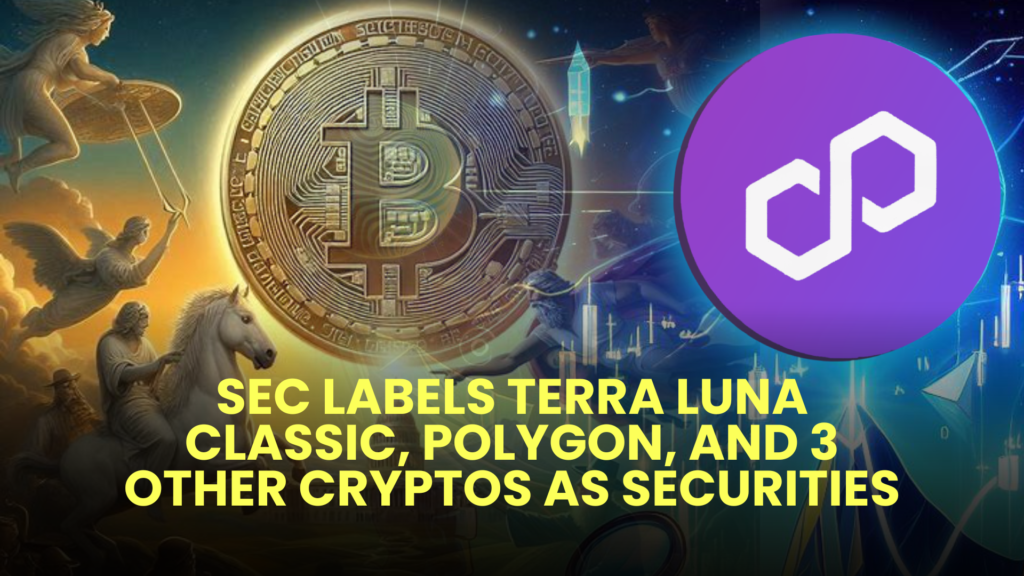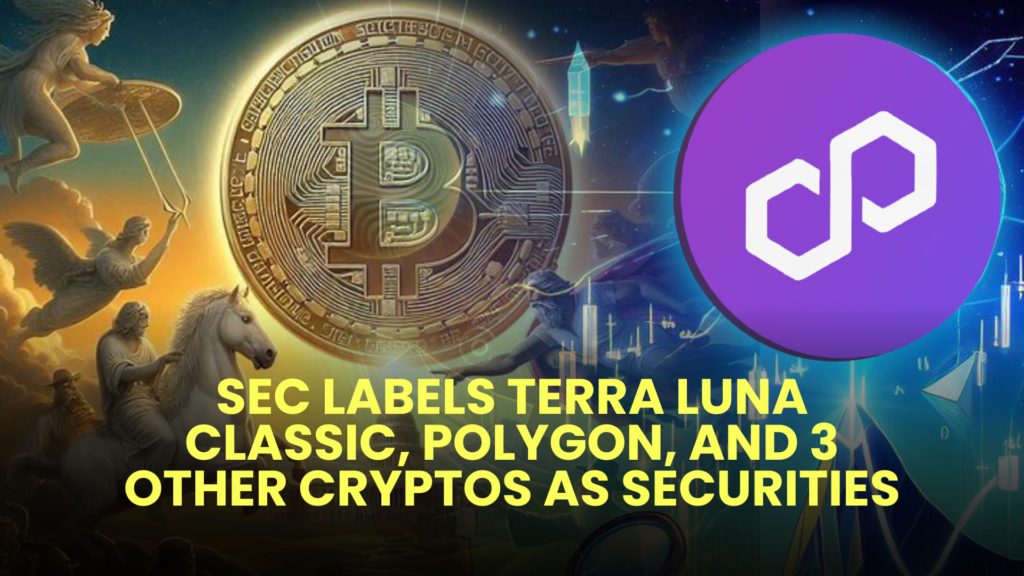
SEC Classifies Multiple Cryptocurrencies as Securities in Consensys Lawsuit
In a recent lawsuit against Consensys, the SEC clarified that cryptocurrencies like Terra Luna Classic (LUNA), Polygon (MATIC), The Sandbox (SAND), Chiliz (CHZ), and Decentraland (MANA) are classified as securities. The SEC claims these tokens were sold as investment contracts, making them subject to securities laws. Consensys, which facilitated trading through its MetaMask Swaps platform, is accused of promoting these assets with promises of future profits.
SEC Identifies MATIC and MANA as Securities in Recent Lawsuit
One of the tokens in question is MATIC, the native token of Polygon, an Ethereum scaling blockchain platform. Polygon positions MATIC as crucial for network transactions and governance, offering incentives through staking mechanisms and other economic activities.
The SEC argues that MATIC has been marketed and sold as an investment vehicle since its inception, with investors expecting its value to increase due to Polygon’s development and expansion efforts. The SEC highlighted MATIC’s whitepaper, which states that MATIC Tokens are essential for economic incentives on the Polygon network, and without them, there would be no motivation for users to participate or provide services.
- Funding raised from prominent and celebrity investors.
- Statements from Sandeep Nailwal, Polygon’s co-founder, promoting Polygon’s top position alongside Bitcoin and Ethereum.
Similarly, MANA, the digital currency of Decentraland, a virtual reality platform on Ethereum, has been classified as a security by the SEC. MANA facilitates transactions within the Decentraland ecosystem and allows holders to participate in governance and content creation. The SEC pointed to the sale of MANA tokens during its ICO and their trading on platforms like MetaMask Swaps, noting these activities were conducted with an understanding of potential profit from Decentraland’s growth and adoption.
SEC Includes CHZ, SAND, and LUNA in Securities Classification
Another token under scrutiny is CHZ, the utility token for Chiliz. Used on the Socios platform for fan engagement in sports and entertainment, CHZ allows fans to purchase and influence decisions related to their favorite teams through voting rights and rewards programs. The SEC alleges that CHZ was promoted as an investment opportunity, with funds explicitly raised for platform development, user acquisition, and marketing efforts, all contributing to potential increases in CHZ’s value.
The SEC’s litigation also highlights SAND, the token of The Sandbox, a blockchain-powered virtual gaming platform. The SEC argues that SAND’s initial offering portrayed it as an investment vehicle, making it subject to securities regulations due to anticipated returns linked to the platform’s success.
Lastly, Terra Luna Classic (LUNA), the native token of Terra, is included in the SEC’s classification as a security. LUNA facilitates stablecoin transactions and governance within Terra’s ecosystem. The SEC asserts that LUNA’s issuance and trading involved expectations of profit based on Terraform’s development efforts and the market adoption of Terra’s stablecoin solutions.
The SEC noted that in 2021, Terraform’s head of business development referred to LUNA as “equity” in their company, and CEO Do Kwon had commented on LUNA’s long-term value growth. Terraform’s marketing emphasized their team’s expertise, contributing to the Federal Court for the Southern District of New York’s ruling on December 28, 2023, that LUNA and wLUNA were sold as investment contracts. The SEC intends to uphold this ruling.


